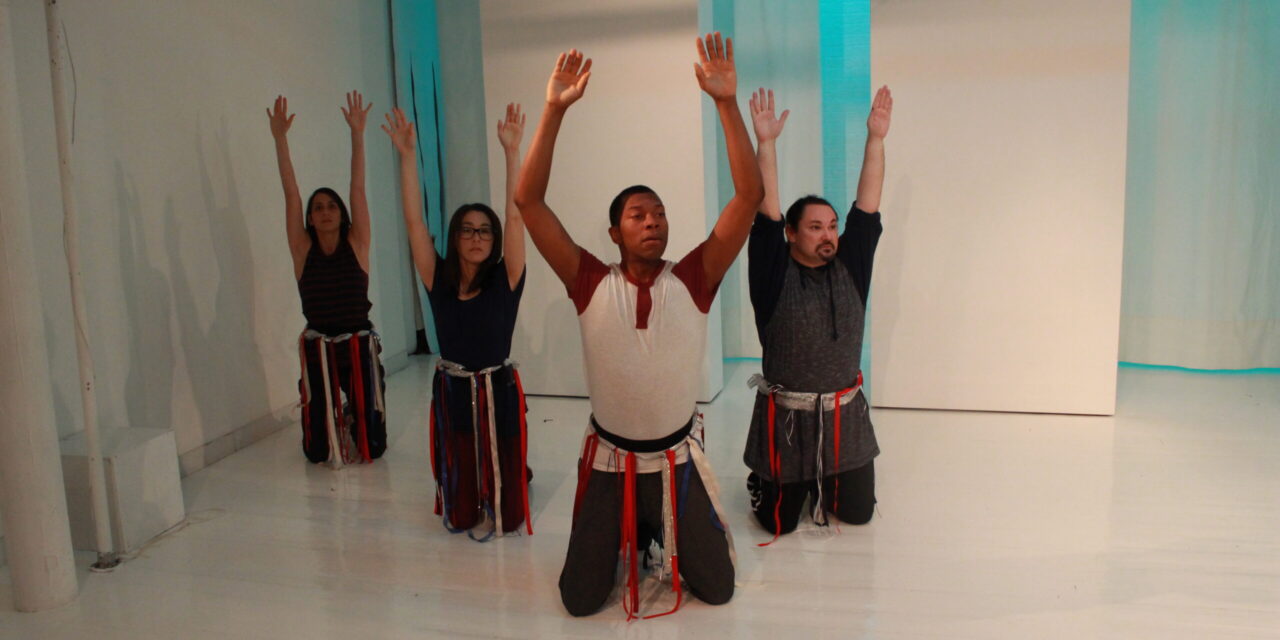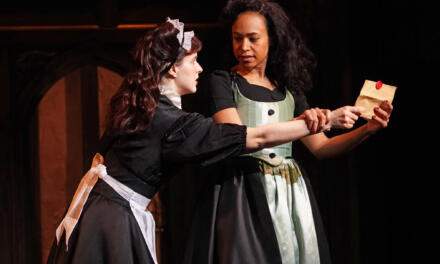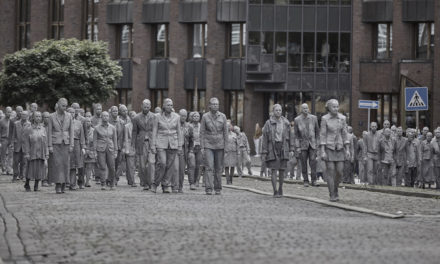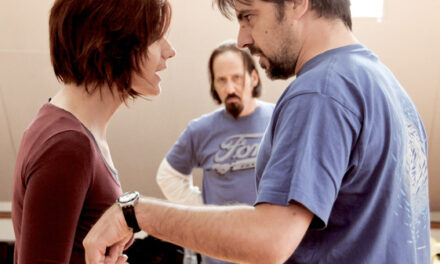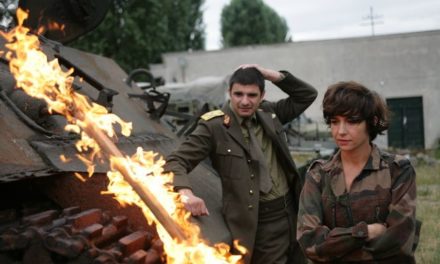Relevant, engaging, creative, and action-inciting work is always being produced at The Anthropologists – a theater company dedicated to devising performances that ask questions and promote prosocial change. Even in the midst of a global pandemic, Artistic Director, Melissa Moschitto, is still collaborating with performer and Creative Partner, Alexandra Kumala, to develop their new production, “No Pants in Tucson” – a devised, absurdist take on the United States’ No Pants Laws, which prohibited women from “cross dressing,” or dressing in a way that could be interpreted as “masculine” or gender-ambiguous.
While the exact premier date for this piece is uncertain (dependent upon the development of COVID-19 in NYC), this is certainly a show to look out for. With their brilliant and creative minds, Moschitto and Kumala are sure to produce a piece that is equal parts entertaining, hard-hitting, and inspiring. Read more about the development and goals of the play in the interview below and stay updated on the production by visiting The Anthropologists Website.
MM: Melissa could you tell us about the inception of the play and what inspired you to tell this story on stage
Melissa: We first started contemplating this show back in spring of 2018 – initially thinking that maybe we would create some shorter dance play pieces inspired by these ridiculous laws. I read something about a recent overturning of a No Pants Law in Paris and then it was revealed to me that there are plenty of ridiculous laws in the United States. So Mariah Freda – who’s our Artistic Associate and has been with the company since 2012 – and I were talking about these laws and saying “Let’s do this theater-dance piece” and then Cavanaugh was up for his seat and suddenly these ridiculous laws became all too real and scary and we began thinking about what are their contemporary partners in current public policy. And at the time we had just premiered and were starting to tour a solo show about a 17th century painter from Italy – a woman who was assaulted by her tutor. This is already on our minds: women’s rights over their body, bodily autonomy, etc. So suddenly the laws became a lot more serious so we couldn’t get away from that idea and kept developing it.
MM: Melissa & Alexandra, you met at the “Theater of Change” program with Columbia Law School and the Broadway Advocacy Coalition. How did your experience at this program lead to your collaboration on this production?
Melissa: We had met in this course that was a collaboration between Columbia University Law School and Broadway Advocacy Coalition. And the purpose of this one-week intensive was to bring together artists, community organizers, and law students looking at how theater can influence policy change, which has been of interest to me since I started The Anthropologists. Our whole mission is to make theater that asks questions and provokes action and we start each show with a provocation. For this piece, it was really what effect does this body of archaic state laws have on us today – especially women today, women of color, transgender women. Where’s the line’s that tying them together? How did those anti-crossdressing laws of the 1800s pave the way for the bathroom bills of 2017?
When I met Alexandra I thought, “We could totally use our work as artists to be engaging with an a-typical theater audience.” Thinking more broadly about who’s going to hear your message, who’s going to hear your story, how can we use our story-telling tools to help people think about policy in a different way?
Alexandra: A lot of the work that was done during that one-week intensive was artists working with lawyers and community organizers to realize the work that they are doing and dramatize it in an artistic way. I’ve only come to be a collaborator with the company recently, but looking back at all the previous shows, it has always had a social message that is dramatized in theater. So, it felt like a good coming together of ideas.
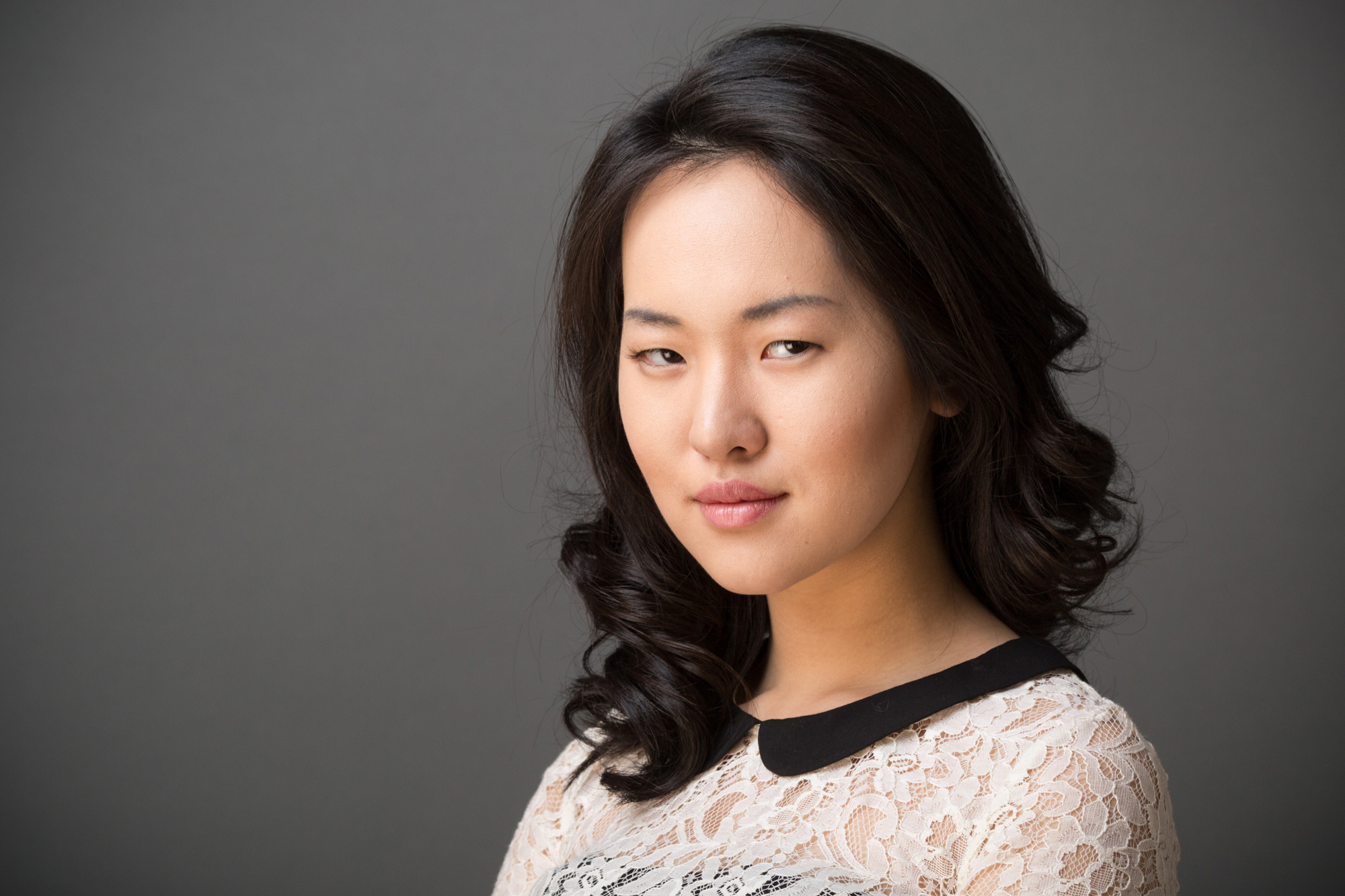
Alexandra Kumala. Photo Credit: Nelson Hancock
MM: Alexandra, in addition to being in the ensemble and a part of the devising team, you hold the role of Creative Partner – Programming and Partnerships where you will be helping the “No Pants in Tucson” team connect with organizations focusing on elevating female politicians and working towards gender parity in politics. Could you tell me more about the role of those organizations as partners in the production?
Alexandra: Yes, I feel like that role also started organically because Melissa and I have been talking a lot about the audience and how we, as a theater company, can partner with organizations who are actively doing the work on the ground and finding a different way to tell their story with our artistic tools on stage. So, we’re building relationships with organizations who focus on overturning gender oppressive laws, who focus on elevating women who are running for congress or positions in politics and the government. They have the knowledge and we have the artistic tools, and we can marry that together.
Melissa: Alexandra and I have been talking a lot about what is the mutually beneficial relationship. For us, getting a more nuanced understanding of policy and how it is overturned or how it is enacted. And by the same token, recontextualizing the work of the organization – whether that’s to the constituents or the staff or the people that they’re working with directly or us being able to raise up their voice to a new audience.
The Anthropologists has a long history of creating programming alongside our shows starting with our first full production back in 2009 with Give Us Bread, where we partnered with independent experts and people on a city and state level. The majority of the programming was around food justice and food disparity and access to food. So that’s one model that we’re looking at: the way we’ve done partnerships before. But Alexandra and I have been talking about how we build something that’s a little bit deeper, a little bit more long-term. We’re hoping that as everyone finds their ground in this new reality, that we can still start some new conversations and find new ways to connect. Our plays always strive to start a conversation, and we want to give the audience a place to go to have those, whether it’s a post-show panel or conversation or workshop.
And I think that Alexandra is the perfect person to do that because not only does she have that interest in activism and policy and the arts, but she has this background in global health and pre-med. She’s been this exciting combination of the intellectual – drawing those connections between the work and the larger world – and a creative person in the rehearsal room.
MM: Could you tell me more about how COVID-19 has affected the production process? How have you overcome the challenges?
Melissa: We had a workshop planned for this spring already where we were going to take this show to Hofstra University to do a work-in-progress showing. So now fast forward to April and the actors were ready and everything’s closed down and we make physical theater so what are we going to do? Because we did have funding in place, it felt more important than ever to stay true to this project and pay our artists especially now where so much work has been cancelled. So, we all became individual artists creating an ensemble show in our own little Zoom boxes.
Alexandra: It sounds like what so many people are doing but I have to say that I have been blown away every week by the quality of content that we create, of these compositions that we create using these technical tools and software in place of using our bodies. We normally create these compositions with our bodies and our voice in a room together, but [now we’re] creating individually in our own little boxes.
Melissa: Everyone – the ensemble of five actors and then myself as director and Irena Kuraeva, our visual designer – has been embracing different tools whether it’s voice overs, voice recordings, using TikTok. We were passing videos back and forth to each other saying, “Okay, you’re going to add sound now on this layer” or “you’re going to take the movement sequence I did and reinterpret it and we’re going to stitch these videos together,” always with the question of “how does that translate to the stage.” We have had a really rich five-week process that was largely focused on investigating characters, historical figures.
Alexandra: There’s been so many unexpected gems that we’ve discovered throughout this digital devising process that sometimes we say, “it works so well when you recorded this this way” but then how do we translate that when we’re on stage and there isn’t a camera? And you can’t go up close and stand far back and play with that? And so, we’ve been thinking a lot about how to keep these wonderful discoveries and still incorporate it into the show without taking away the theatricality of it.
MM: Like you stated, part of the Anthropologists mission is to create theater that inspires action. What call to action do you hope that people will leave with when they leave this production?
Melissa: When we started this project, a lot of it was about getting people to get out and vote – this was on an earlier timeline – and then trying to encourage people to seek out new voices in the political realm, looking for new voices in the civic sphere. Whether that’s on a really local level – City Council here in New York – or if it is about getting more women elected to Congress. The percentage of women or transgender or non-binary people in office is really low (in 2019, 74.4% of Congress was cis-male identifying). And when you look at the kind of legislation that people are trying to pass that is gender oppressive, that agenda is being held largely by men.
Alexandra: But also why we’re partnering with, and we’re hoping to develop long term partnership with, these organizations who do work on the ground empowering women to run for office who are working to overturn gender oppressive laws because a lot of the time people go see a show that talks about social and political thing and then at the end of the show they walk out of the theater or the cinema and think “great so we have all this new knowledge – now what.” Because we are partnering with organizations that actually work on the ground and that aspect, there is a direct action that can be taken if people choose to do that.
Melissa: And always trying to give people different avenues with those partner organizations, like Alexandra said whether it’s to learn about this organization or volunteer for this organization or learn about this woman running for office or maybe become the woman that’s running for office. Because people are going to find their way into the work in different ways and so we’re always looking for those different avenues. Or even to just open up people’s eyes to this history that feels really far away but it’s not.
Alexandra: That’s something that we’ve discovered. That history keeps repeating itself. We look at things – case studies from the past and we talk about things that are going on today and we think, “I can’t believe that women still have to do this today.”
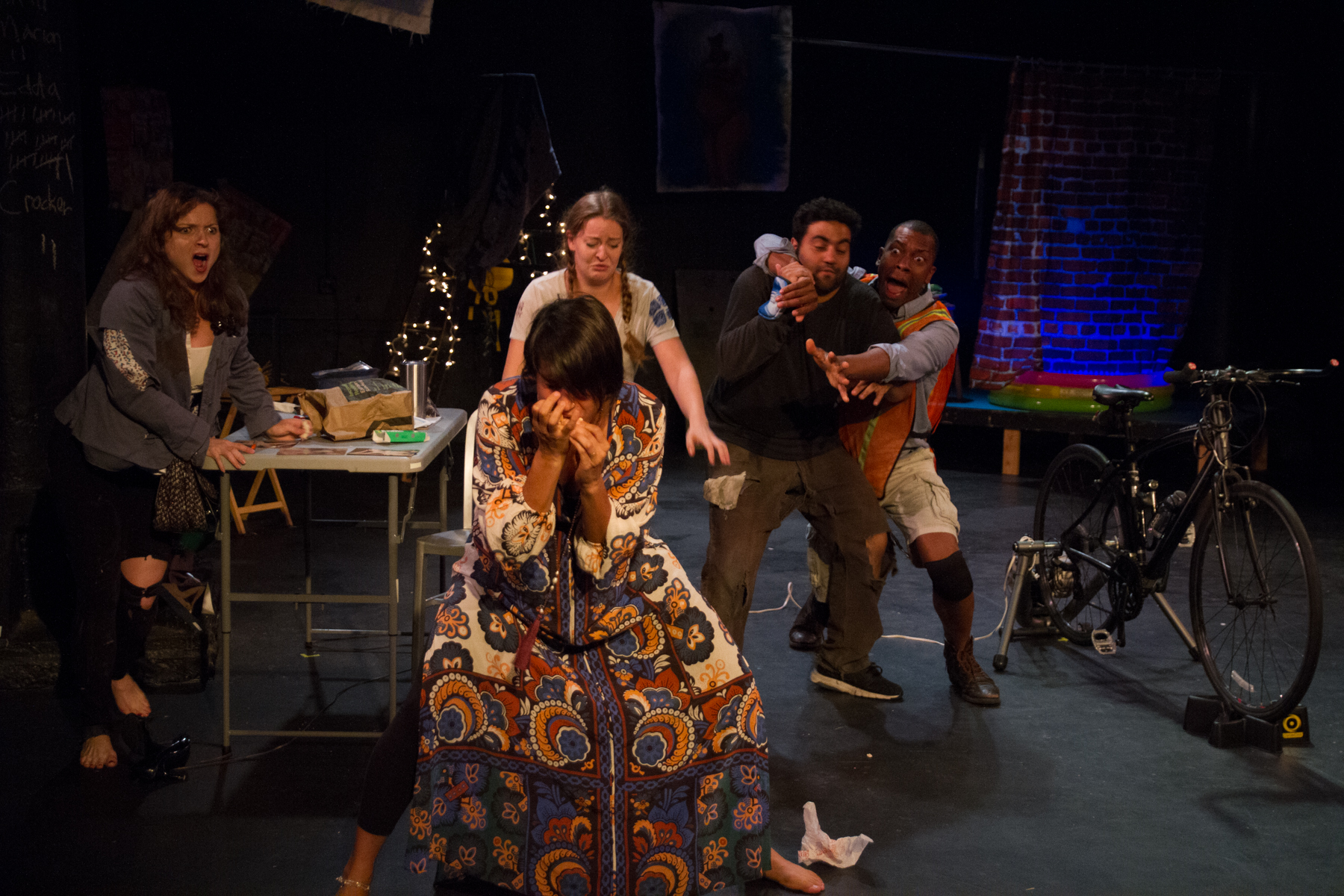
Production photo from Save The World. Photo credit: Jody Christopherson.
MM: What do you observe about American society today that makes this play necessary for the present moment?
Melissa: When I founded the company in 2008, it was really out of a desire to see and put more complex women on stage and to resurrect voices that had been lost from history. Like Alexandra, the character that you had been focusing on, Jackie, I’m trying to remember the first little tidbit of information that you came across of hers. I think there was a photograph and one reference of her being arrested and then she had to go to court.
Alexandra: She worked at a machinery plant – this was in the 1950s, so the US was at war – and they expected her to not wear pants even though she works at a machine plant. And something that I found really interesting is that we look at these women from the 1800s, the 1900s and part of our extensive research, we’ve also found a lot of things from contemporary cases: A global major accounting firm that has these women’s retreats but then [they had these] company policies –
Melissa: It was more like a guide, a training for women in that company like how they should dress before a presentation and how women’s brains work differently from men’s. It was super misogynistic, but it got leaked.
Alexandra: It came out last year and it was said, if you’re a woman and you’re talking to a man you can’t position yourself face-to-face with a man you have to talk to him sideways because that way he will be more responsive and more open to your suggestions. It’s crazy to think that we have these women in the 1800s, we have these women in the 1950s and then things are still coming out like last year where they still have these guides where they say, “in order for women to succeed you have to do these things.” We think about how women are no longer in the kitchen being forced to bake pies but now that women are in high-rise offices, it’s still the same kind of systemic oppression where you have to pander to this patriarchal system.
Melissa: And so many of the stories that we found really intersect with the LGBTQ community in terms of gender expression and sexuality and how clothing really does intersect with that – just as much as the research that we’ve done about dress reform movement that was tied very closely to the suffragettes movement and women getting the vote. And it’s all challenging the idea of who and what and how women should be, which is certainly something that is still being challenged today and if anything, another action item for the audience and for all of us is to check ourselves – what preconceptions do we hold that have been introduced to us by our culture that we really need to dismantle?
This post was written by the author in their personal capacity.The opinions expressed in this article are the author’s own and do not reflect the view of The Theatre Times, their staff or collaborators.
This post was written by Megan McCormick.
The views expressed here belong to the author and do not necessarily reflect our views and opinions.

